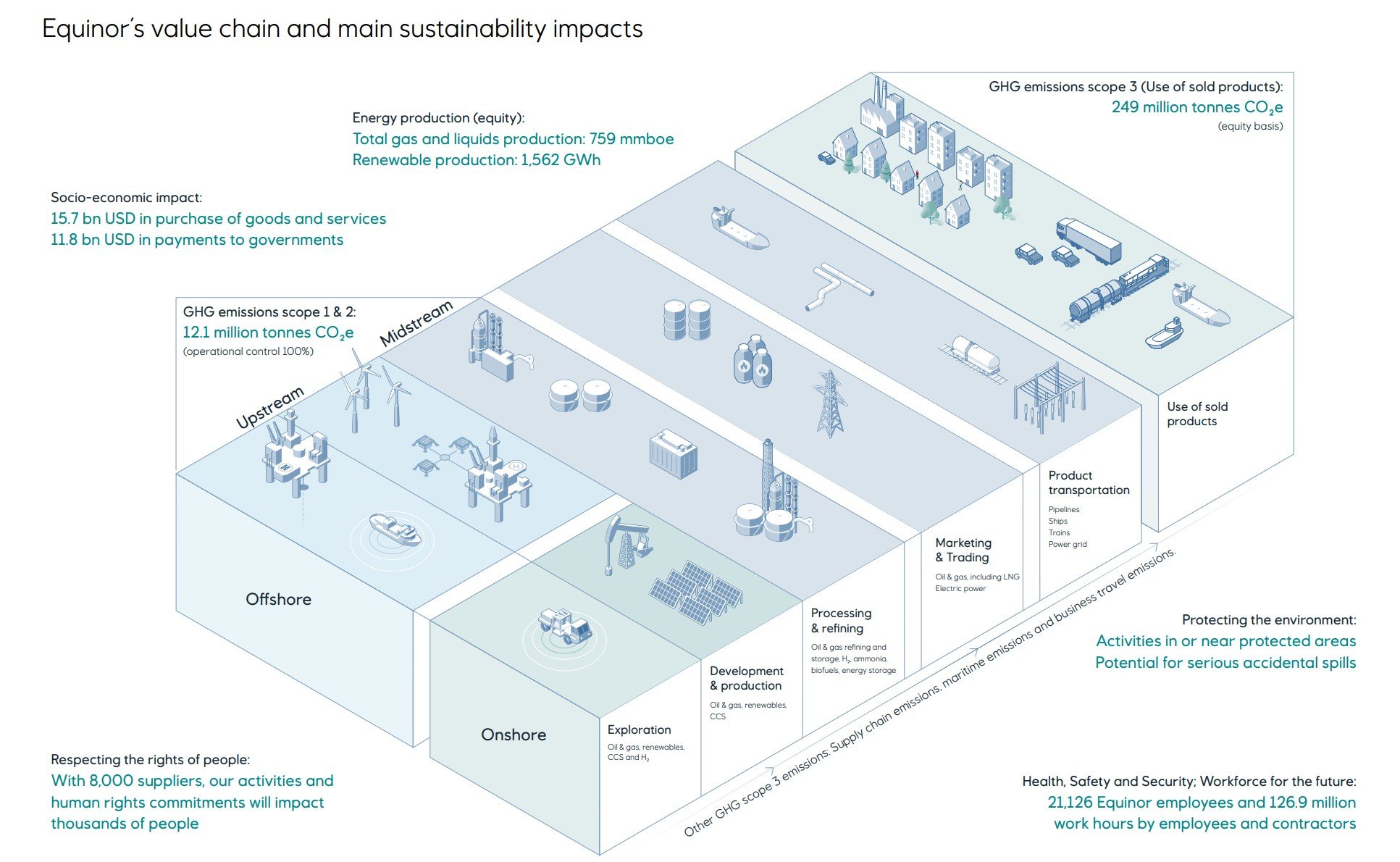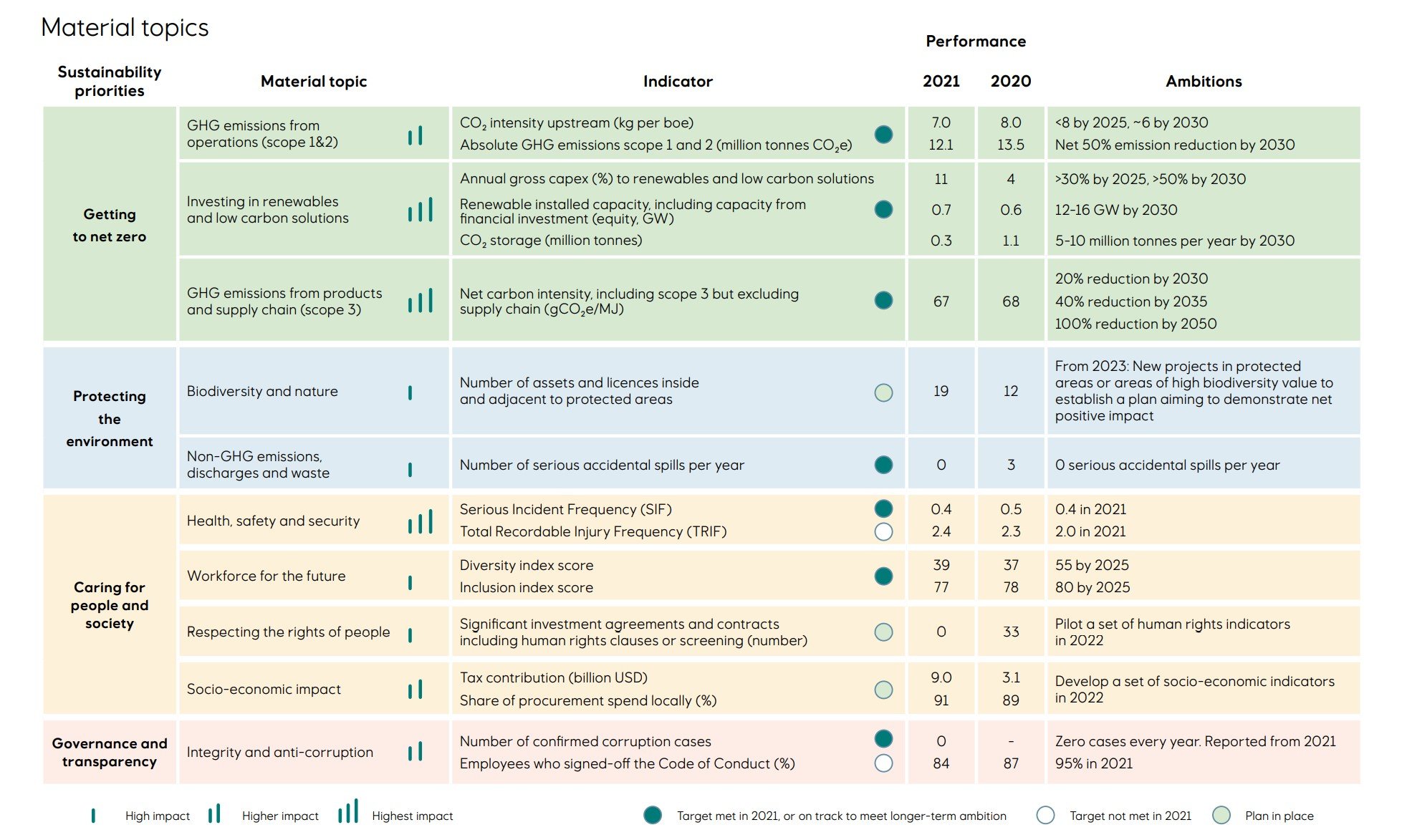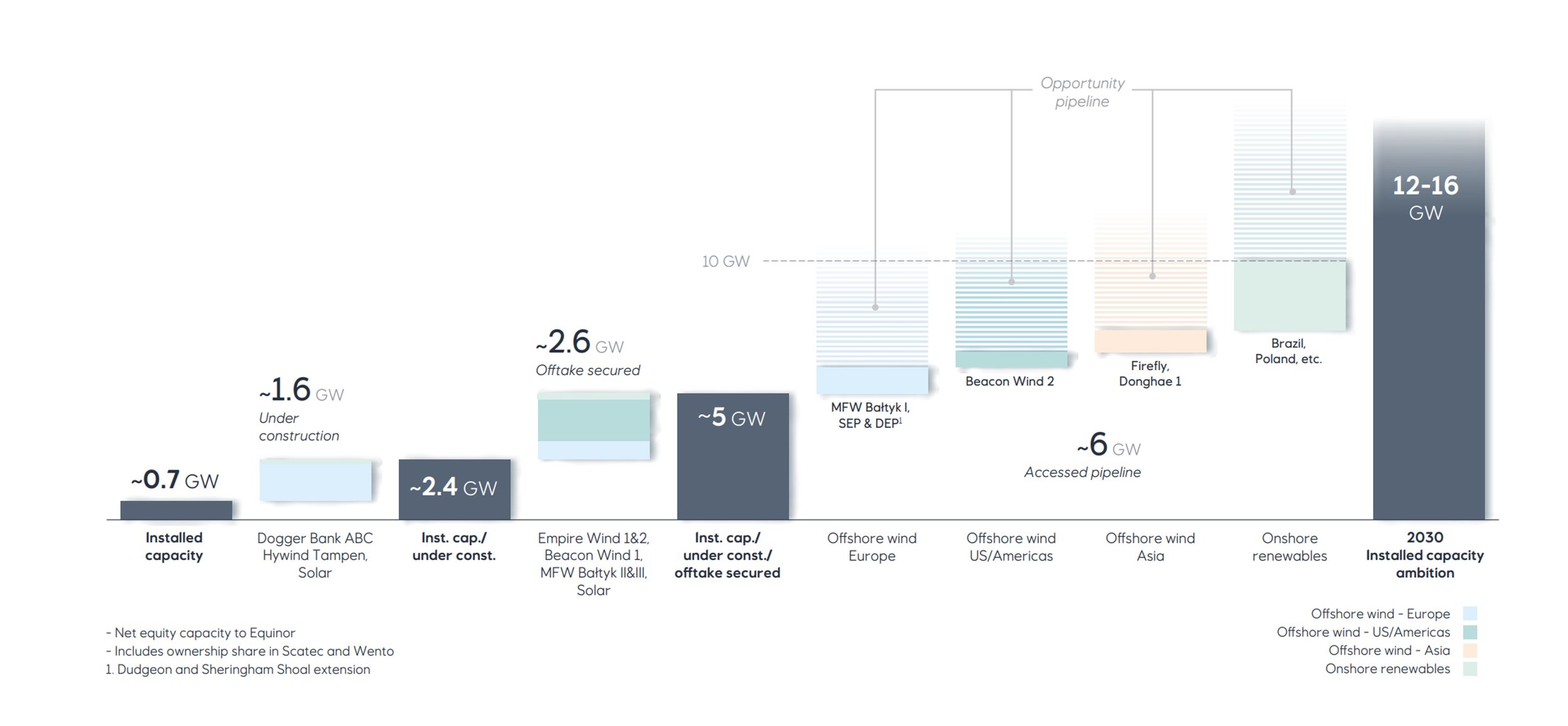Equinor
Equinor plans to achieve carbon neutral global operations by 2030 and to reduce absolute greenhouse gas emissions in Norway to near zero by 2050. With regards to ‘maritime emissions’, they are in line with IMO, aiming for 50% reduction globally including all vessels contracted by Equinor.
Need help with a tender?
We can provide you with a tender plan or other reporting
Sustainability Report
About Equinor
Equinor plans to achieve carbon neutral global operations by 2030 and to reduce absolute greenhouse gas emissions in Norway to near zero by 2050. With regards to ‘maritime emissions’, they are in line with IMO, aiming for 50% reduction globally including all vessels contracted by Equinor.
Equinor established new short and medium-term climate ambitions in support of net zero by 2050. Actions to ensure these ambitions include electrification of Sleipner and Troll, start of construction of the Northern Lights CCS project and increased CAPEX investments in renewables and low carbon solutions. The share of gross CAPEX for this category has increased from 4% in 2020 to 11% in 2021. In 2025, Equinor expects to have more than 30% of our annual gross capex allocated to renewables and low carbon solutions.
The annual bonus for employees is based on a holistic company performance, which includes the results within safety, security and sustainability, among other areas.
Shore Power
Equinor is looking extensively into the electrification of platforms offshore, most noticeably the Sleipner and Troll platform as well as the Martin Linge oil and gas field. Limited to no efforts are made with regards to shore power for ships or service providers, with the noticeable exception of fjords within the existing Fjords Zero Emissions Directive (which mostly impact passenger vessels and roros only).
Carbon Tax
For portfolio and decision analysis, Equinor’s base assumptions include a carbon cost for all assets and projects. In countries where no such cost exists, they use a generic cost, the default minimum is set at 58 USD per tonne (real 2021), that increases to 100 USD per tonne by 2030. In countries with higher carbon costs, they use the country specific cost expectations. This carbon cost is included in investment decisions and is part of break-even calculations when testing for profitability robustness. The actual CO₂ costs (operational control) were 978 USD million in 2021.
Partnerships
Equinor participates in a wide range of relevant sustainability associations and industry initiatives. These include: CCSA, Hydrogen UK, the International Emissions Trading Association, IPIECA, Methane Guiding Principles, Oil and Gas Climate Initiative, Oil and Gas Methane partnership, Renewable UK, Sustainability Hub Norway, the Task Force on Climate related Financial Disclosures, the Task Force on Nature related Financial Disclosures, United Nations Global Compact, Wind Europe, the World Business Council for Sustainable Development, and the World Resource Institute.
Governance
The CEO is responsible for Equinor’s day-to-day safety, security and sustainability management, including decisions and actions related to climate and the energy transition. The business line is accountable for executing the company’s sustainability ambitions and for managing relevant risks and performance. Dedicated safety, security and sustainability specialists in the business line are part of company-wide functional networks and provide advice and support to the business line.
Frequently Asked Questions
-
Description text goes here









